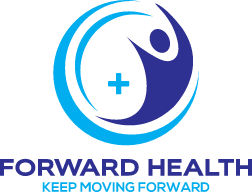Blue Cross Blue Shield Substance Abuse Treatment: Does BCBS Cover Drug Rehab?
BCBS insurance companies are spread all over the nation, and they provide insurance to nearly 105 million individuals and families. In other words, they cover almost one in every three people! General BCBS coverage includes taking care of some of the costs associated with the following levels of care:
- Inpatient Hospitalization
- Residential Detox or Non-Medical Detox
- Residential Treatment
- Partial Hospitalization Treatment
- Intensive Outpatient or Outpatient Treatment
Contacting BCBS directly may not guarantee the best options for you, as we base most of our referrals on clients’ past experiences who have gotten their alcohol and drug rehab treatment programs covered by insurance.
Blue Cross Blue Shield Drug Rehab: Understanding Your Benefits Plan
Your Blue Cross Blue Shield substance abuse treatment options vary depending on your specific needs and the severity of your addiction, usually based on a clinical assessment by a treatment provider or doctor. Your BCBS insurance may cover the following treatments:
Detox and withdrawal management: Detox ensures you’re safely stabilized and ready to enter a substance abuse and recovery program.
Outpatient treatment: You may receive therapy and counseling at a treatment facility, but you will live at home.
Inpatient treatment: You may be admitted to a rehab clinic or hospital where you will receive inpatient treatment lasting several days or a few weeks. Additionally, BlueCross BlueShield plans might call for a pre-certification for those planning to enroll in an inpatient hospital or facility for substance abuse treatment and services.
Residential treatment: You may receive treatment for a more extended period lasting up to a full year.
Sober living: You may temporarily live at a sober living home while transitioning from intensive treatment to independent living.
MAT (Medication-Assisted Treatment): MAT involves certain prescription medications, therapy, support, and counseling. The meds work by blocking the effects of drugs and alcohol or minimizing withdrawal symptoms and cravings. The most common medications include naltrexone, buprenorphine, or methadone.
Blue Cross Blue Shield offers a variety of different benefit plans. Understanding the following terminology will help you select a treatment provider:
Blue Cross Blue Shield Drug Rehab Coverage Details
Network: Nearly all Blue Cross drug rehab plans use a network, which means that in-network healthcare providers offer services at a lower cost. Your specific benefit plan determines your network.
Policyholders may be responsible for the difference in cost between the plan allowance and the specific billed amount by the provider if an out-of-network or non-preferred provider was used. In these cases, you may need to pay the entire amount.
Prior authorization (pre-certification): When it comes to drug rehab, Blue Cross plans typically require prior authorization for inpatient treatment, and many require authorization for outpatient treatment. BCBS may also require a full clinical assessment to confirm your treatment needs.
Your share of treatment costs: If you’re like most people, understanding your share of treatment costs is one of the most confusing things about insurance coverage. In short, your deductible is a set amount you must pay before BCBS makes any payment. A copay is a specific amount you must pay out-of-pocket at the time of service. You may also have to pay coinsurance, which limits your coverage to a certain percentage. Most plans are 80-20 coinsurance, which means BCBS will pay 80 percent, and you will pay the remaining 20 percent.
Blue Cross Blue Shield Drug Rehab Facilities: Finding Drug Rehabs That Accept Blue Cross Blue Shield
Does Blue Cross Blue Shield Cover Drug Rehab & Addiction Treatment for Opiate Treatment?
According to Blue Cross Blue Shield, more than 100 Americans die from opioid overdoses daily, and millions are at risk. BCBS member insurance companies have joined with community groups, pharmacists, medical providers, and others to devise solutions and care for those needing treatment. Forward Health Ohio works with Blue Cross Blue Shield and can help you understand how to navigate verifying your policy for addiction treatment.
BCBS has also established several strategies to prevent addiction to opioid drugs, including education, alternative meds for pain control, proper disposal of unused medications, and tighter control of unnecessary or fraudulent prescriptions.
Seek Treatment: The Sooner, The Better
It can be intimidating to start understanding your BlueCross BlueShield policy and figuring out how to cover the cost of substance abuse treatment for you or a loved one. Fortunately, we have a professionally-trained staff of addiction experts ready to walk you through every step of the way. Here are some other benefits of being a BCBS policyholder and enrolling in a Forward Health Ohio treatment program:
- We’ll review and walk you through your Blue Cross Blue Shield health insurance plan.
- We’ll help determine if you are covered for specific detox, substance abuse treatment, and mental health services.
- We’ll help you decide what kind of treatment is best and how much BCBS will cover.
The sooner you get started, the sooner you can be on the road to a happier, healthier life, free of substance abuse and addiction.
